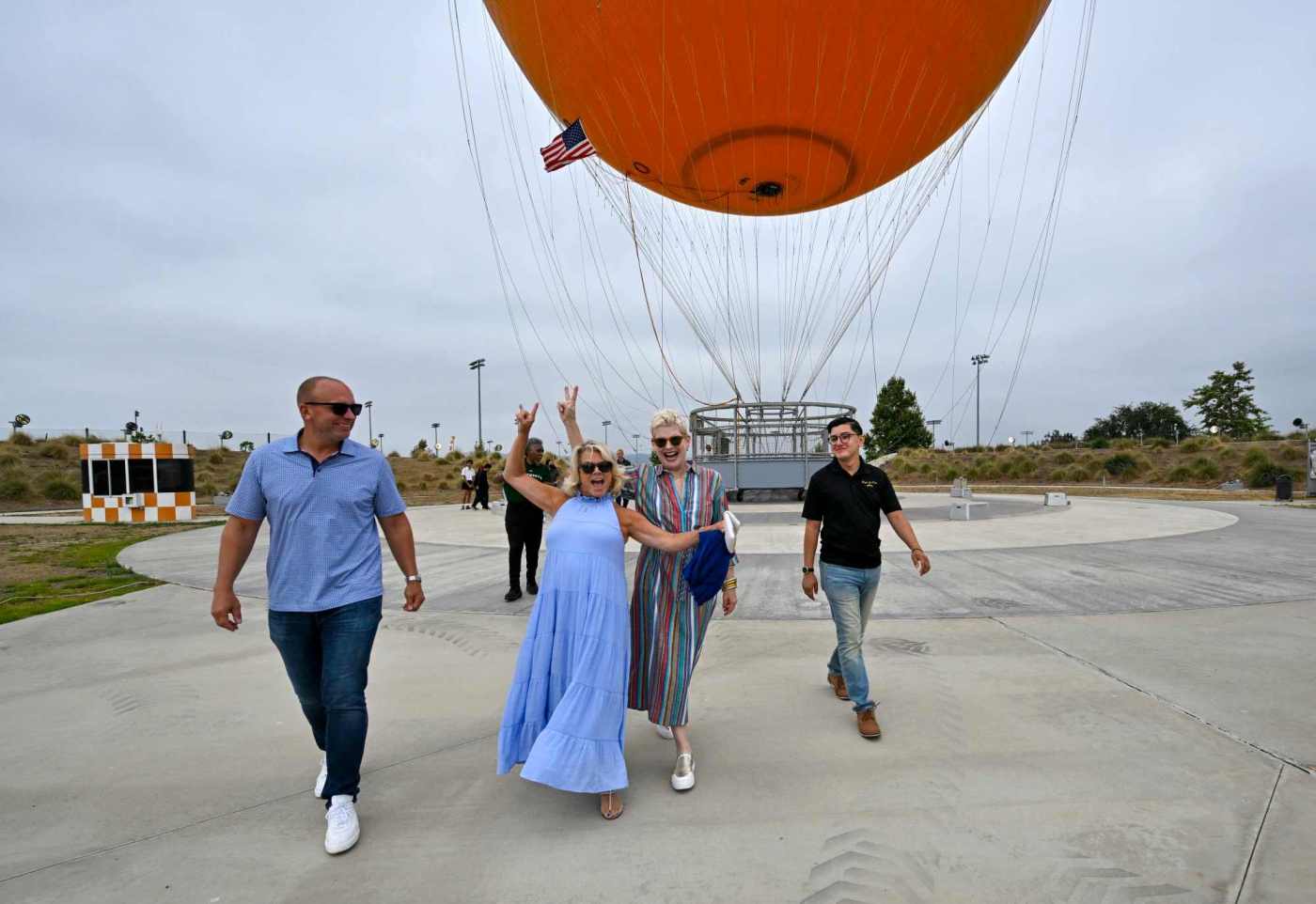For awhile after Todd Kennedy was diagnosed with a rare blood cancer in 2017, his alarm sounded at about 5 a.m. two days out of the week, hoping to beat the morning rush hour for the 60 mile drive from Coto de Caza to the City of Hope cancer center in Duarte.
Lab tests were scheduled for 7 a.m. A clinical visit took place at 9 a.m.
Then, for five or six hours, Kennedy would sit in the infusion center, undergoing the exhaustive chemotherapy injection.
After being at the cancer-focused hospital all day with his wife, Diane, and feeling drained by the treatment, the couple would get back in their car and drive the hour-and-a-half commute home to Orange County.
After “over 100” trips to and from Duarte over the years, starting this week, Kennedy only has to drive a few miles up the freeway to Irvine for his care.
With the opening of City of Hope’s new outpatient cancer center, which welcomed its first patients on Monday, Aug. 22, “it’ll be a game-changer,” said Kennedy, who is now considered in remission.
As the first appointments got underway at the facility — located off Barranca and Alton parkways — some City of Hope patients were lifted 300 feet into the air on the nearby Great Park Balloon, peering over the railing to see a 360 degree view of the city and spot the massive new cancer center in the distance.
Displayed on the big orange globe in celebration were the words “Hope” on one side and “Rise Above Cancer” on the other.
The 190,000-square-foot cancer center is part of City of Hope’s $1 billion expansion into Orange County. Smaller clinics in Newport Beach, Huntington Beach and Irvine have opened since 2020, part of the cancer center’s mission to expand access to its expert care and research to more people and relieve local residents from the daunting commute to the main hospital in Duarte.
A specialty cancer hospital recent broke ground and will open in 2025 adjacent to its new outpatient center.
Until now, almost 4,000 patients were making the drive from Orange County to Duarte for cancer treatment, some commuting two hours each way, said Kelsey Dalton, spokesperson for City of Hope Orange County.
When the new Irvine facility opened its phone line earlier this month for patients to start making appointments, dozens and dozens of calls streamed in — 165 in the first week alone, Dalton said. Of those, 60 people were new to City of Hope.
For Kennedy, his first call to City of Hope in 2017 was answered by an intake operator who was “so sincere,” he said, and helped him get scheduled for an appointment the next week.
“That’s how simple it was,” Kennedy said. “That’s the part that gets often missed, is the trauma around navigation.”
But at City of Hope, “that’s part of the compassion side I think,” he said, “is to make not only the disease itself, but the process of managing your disease, something that’s supportive and comprehensive.”
City of Hope accepts a wide range of insurance and coverage types, including in- and out-of-network plans, Medi-Cal and Medicare, officials said.
Frank Wilderson III first called City of Hope about two years ago when he needed diagnostic testing to figure out where the cancer that had been detected in blood tests was actually located in his body. After receiving treatment beginning in 2014 for prostate cancer and going into remission, the disease came back six years later, but had spread to lymph nodes, which oncologists initially could not detect, he said.
He sought medical insight at a cancer center in Mexico, and paid more than $30,000 for three weeks of care, he said.
Wilderson said his primary care physician suggested he go to City of Hope. At the center’s Sand Canyon Avenue clinic that opened in Irvine in 2021, they provided a diagnostic scan “not suggested by any other oncologist I’ve been to since 2014,” he said, which showed the cancer was growing rapidly.
If it hadn’t been caught then, Wilderson believes he would be suffering today from cancer that had spread to a vital organ or his bones.
“I’d be in worse shape,” he said.
Wilderson will be one of the first patients to receive care at the new Irvine facility when he arrives for his appointment Wednesday, during which he’ll go over with his oncologist how his medication has been working. Instead of chemotherapy, radiation or surgery, he is taking a daily pill that works to suppress hormones that worsen prostate cancer — a non-invasive treatment that he said was not suggested by previous doctors.
For Wilderson, who is a chancellor’s professor of African American Studies at UC Irvine, being treated by City of Hope’s experts has “changed my whole outlook,” he said. Once told he would only live five years with his type of cancer, the treatment options offered by City of Hope have provided a much more optimistic prognosis, he said, and doctors told him he can survive decades even if the cancer doesn’t go away completely.
Kennedy’s multiple myeloma is incurable, but is manageable. That he’s survived this long is a credit to the care and expertise he’s had access to – now much closer.
Because cancer affects so many people (about 39.5% of American adults will get a cancer diagnosis during their lifetime the National Cancer Institute estimates), Kennedy said he’s most grateful those he’s close to would have easier access to City of Hope’s care in the future should they need it.
“It’s what it means for our community more even than for me,” he said of the new center’s opening. “I can endure a long drive, but so many can’t.”
Related Articles
City of Hope outpatient cancer center celebrates completion in Irvine





